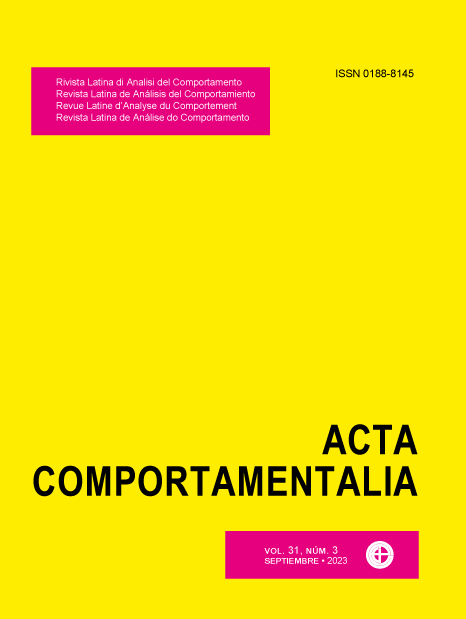Efecto del timbre del tono en una tarea de discriminación demorada
Contenido principal del artículo
Resumen
Evaluar las habilidades requeridas como componentes mínimos para su estructuración como competencias es una alternativa en el análisis de competencias conductuales y aptitudes funcionales. Este trabajo evaluó la habilidad discriminar utilizando una tarea de discriminación demorada de tonos en el contexto del dominio de la iniciación en música y educación del oído. Se programó una tarea de discriminación de tonos con un intervalo entre estímulos de 20s con la finalidad de evaluar el efecto de dos tipos de timbre (i.e., tono puro y voz humana) sobre el porcentaje de respuestas correctas en la tarea. Participaron 30 estudiantes mujeres con una edad promedio de 22 años. Los resultados mostraron un mayor porcentaje de respuestas correctas ante el timbre de voz humana en comparación con el tono puro. Los resultados se discuten en relación con estudios previos e interpretan en términos de los modos lingüísticos y su relación con las habilidades discriminar y reproducir.
Detalles del artículo
Citas en Dimensions Service

<a rel="license" href="http://creativecommons.org/licenses/by-nc-sa/4.0/"><img alt="Licencia de Creative Commons" style="border-width:0" src="https://i.creativecommons.org/l/by-nc-sa/4.0/88x31.png" /></a><br />Este obra está bajo una <a rel="license" href="http://creativecommons.org/licenses/by-nc-sa/4.0/">licencia de Creative Commons Reconocimiento-NoComercial-CompartirIgual 4.0 Internacional</a>.
